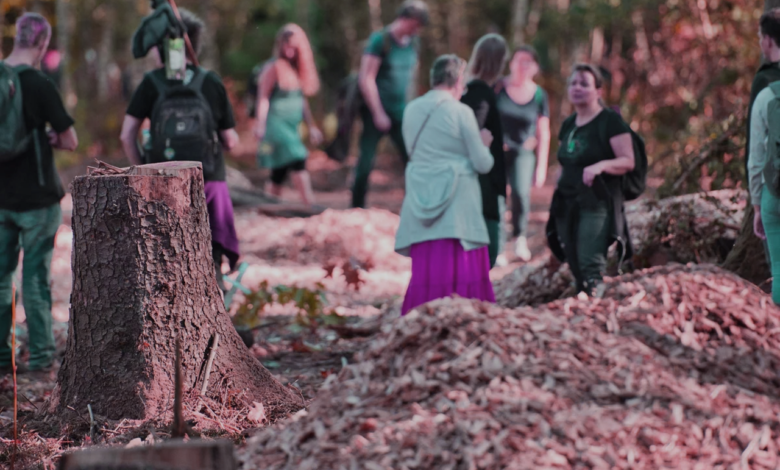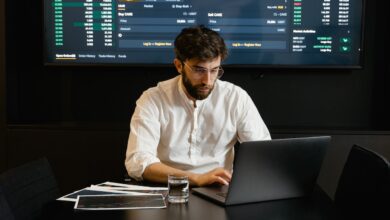America’s Most Unusual Entrepreneurs:The CEO Who Lives in a Treehouse
Unusual entrepreneurs redefine success. Meet the CEO living in a treehouse and other unconventional business leaders breaking corporate norms.

In a world where corporate leaders typically reside in penthouse suites and high-rise offices, one Unusual Entrepreneurs is turning heads by calling a treehouse home. This visionary CEO has rejected conventional living spaces in favor of an elevated abode nestled among the branches, proving that business success and unconventional lifestyles can coexist. The story of this treehouse-dwelling executive represents a growing movement of unusual entrepreneurs across America who are redefining what it means to live and work on their own terms, blending professional ambition with personal authenticity.
These unconventional leaders are challenging long-held assumptions about corporate life, demonstrating that innovation often flourishes outside traditional environments. From tech moguls operating from remote cabins to startup founders running businesses from converted vans, America’s most unusual entrepreneurs are creating a new blueprint for success one that prioritizes sustainability, creativity, and work-life integration. Their stories inspire us to reconsider where and how we work, offering compelling alternatives to the standard corporate playbook in an increasingly flexible business landscape.
America’s Most Unusual Entrepreneurs
The Rise of the Unconventional CEO
The traditional image of a CEO power suits, high-rise offices, and corporate boardrooms is being upended by a new breed of leaders who prioritize freedom, sustainability, and authenticity. Among them is the now-famous tech executive who swapped Silicon Valley’s glass towers for a custom-built treehouse nestled in a redwood forest. This decision wasn’t just a publicity stunt; it was a deliberate choice to align personal values with professional life.
Entrepreneurs
This trend isn’t limited to treehouses. Across the country, Unusual Entrepreneurs are embracing alternative workspaces, from tiny homes and repurposed shipping containers to nomadic Airstream trailers and off-grid cabins. What unites them is a rejection of the conventional corporate grind in favor of a lifestyle that fosters creativity, sustainability, and well-being.
Why Unconventional Living Fuels Innovation
There’s a growing body of research suggesting that environment profoundly impacts creativity and productivity. Studies have shown that exposure to nature reduces stress, enhances cognitive function, and sparks innovative thinking something many of these Unusual Entrepreneurs have experienced firsthand. The treehouse-dwelling CEO, for example, reports that some of the company’s best ideas have emerged during brainstorming sessions held among the branches, far from the distractions of a traditional office.
Mental Benefits of Living Thing
Beyond mental benefits, unconventional living often leads to operational efficiencies. Without the overhead of a pricey urban office, these Unusual Entrepreneurs can reinvest savings into their businesses or prioritize sustainable practices. One founder who operates from a solar-powered tiny home estimates that the switch slashed their company’s carbon footprint by 40% a selling point that resonates with eco-conscious clients. Others highlight the flexibility of mobile workspaces.
Other Unusual Entrepreneurs Breaking the Mold
Beyond the treehouse-dwelling CEO, there are countless other unusual entrepreneurs making waves in their industries. Consider the founder who operates a multi-million-dollar consulting firm from a converted school bus, traveling the country while working remotely. Or the restaurateur who built a zero-waste eatery inside a repurposed shipping container. These individuals prove that business success doesn’t require a traditional office or a conventional lifestyle.
Challenges
Despite the appeal, this lifestyle isn’t without hurdles. Zoning laws, building codes, and societal expectations often clash with alternative living arrangements. The treehouse CEO, for instance, faced months of permitting battles before their home was legally recognized. Others grapple with misconceptions like the assumption that working from a van or cabin means they’re “on vacation” rather than running a serious business.
Skepticism
Skepticism often follows unusual entrepreneurs, with critics questioning whether unconventional lifestyles like living in a treehouse are sustainable for long-term business success. Some argue these choices are mere publicity stunts rather than genuine commitments to alternative living. Others raise practical concerns can a CEO effectively lead a company from a remote, off-grid location.
Scalability
There’s also the question of scalability. Can a company thrive long-term if its leader operates outside traditional systems? Some skeptics argue that these setups work only for solopreneurs or niche businesses, but many unusual entrepreneurs have built scalable, profitable enterprises. One example is a software company with a fully remote team, whose CEO credits their mountain retreat for fostering a culture of trust and autonomy that drives performance.
The Broader Cultural Shift
These Unusual Entrepreneurs are part of a larger cultural movement that values experiences over possessions, flexibility over rigidity, and sustainability over excess. Millennials and Gen Z, in particular, are driving demand for businesses that align with their values whether that’s environmental responsibility, ethical labor practices, or authentic storytelling.
Criticisms
Of course, this lifestyle is not without its challenges. Unconventional living arrangements can face legal hurdles, zoning restrictions, and societal skepticism. Some critics argue that these entrepreneurs are merely indulging in a trend rather than making a substantive impact. However, many of these business leaders are actively involved in sustainability initiatives, proving that their choices are more than just aesthetic.
Competitive Advantage
The rise of digital nomadism, co-living spaces, and eco-villages further reflects this shift. As technology decouples work from physical offices, more professionals are experimenting with where and how they live. For entrepreneurs, this freedom can be a competitive advantage, allowing them to attract talent and customers who share their vision for a different kind of future.
Read More: Social Listening: How to Understand and Connect with Your Audience (2023)
Conclusion
The story of the treehouse-dwelling CEO is more than a curiosity it’s a testament to the changing face of entrepreneurship. These unusual entrepreneurs challenge the status quo, proving that success isn’t about fitting into a predefined mold but about crafting a life and business that reflect one’s deepest values. Their choices whether living in a treehouse, a tiny home, or a roaming van demonstrate that innovation often flourishes outside traditional boundaries.
By living closer to nature, this CEO found increased mental clarity, reduced stress, and a renewed sense of purpose benefits that translated into more innovative leadership and a stronger company culture. As society grapples with climate change, burnout, and the evolving nature of work, these leaders offer a compelling alternative. Unusual Entrepreneurs, They remind us that business can be a force for good, that productivity doesn’t require sacrifice, and that the most impactful ideas sometimes come from the most unexpected places. For the next generation of Unusual Entrepreneurs, their greatest legacy may be the permission to think and live differently.
FAQs
Why would a CEO choose to live in a treehouse?
Many seek a closer connection to nature, reduced stress, and a lifestyle that aligns with their values of sustainability and creativity.
Can unconventional living spaces actually improve business performance?
Yes studies show that natural settings boost creativity, while lower overhead costs and flexible workspaces can enhance efficiency.
What are the biggest challenges of this lifestyle?
Legal hurdles, societal judgments, and the logistics of running a business remotely are common obstacles. Maintaining professional credibility while living unconventionally requires consistently delivering.
Do employees or clients take these entrepreneurs seriously?
Increasingly, yes. Authenticity and innovation often resonate more than traditional corporate trappings. Clients and employees increasingly value authenticity over traditional corporate facades.
Is this trend here to stay?
As remote work and eco-consciousness grow, more Unusual Entrepreneurs will likely explore alternative living and workspaces. As younger generations prioritize purpose over tradition, treehouse CEOs may inspire.











